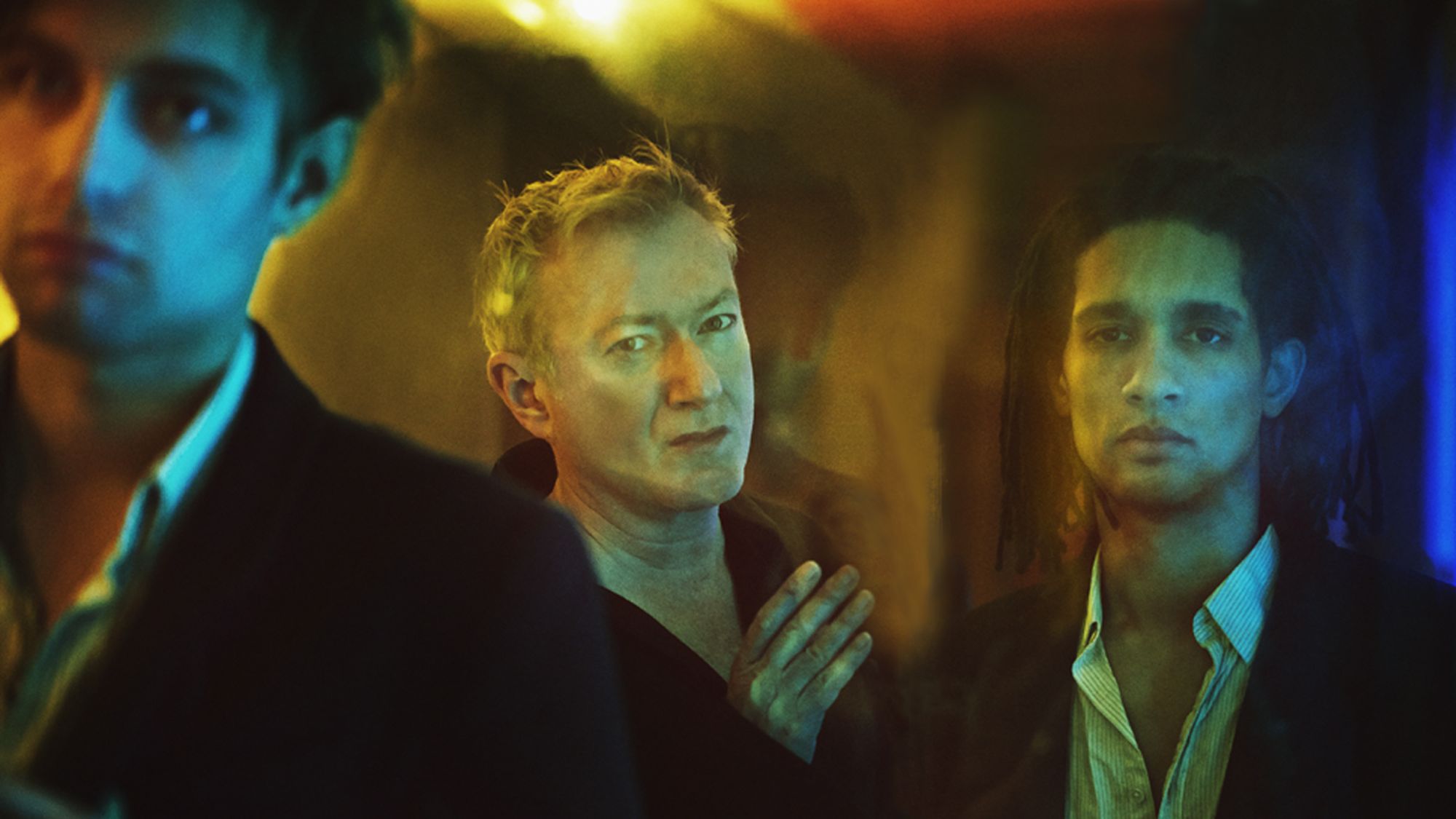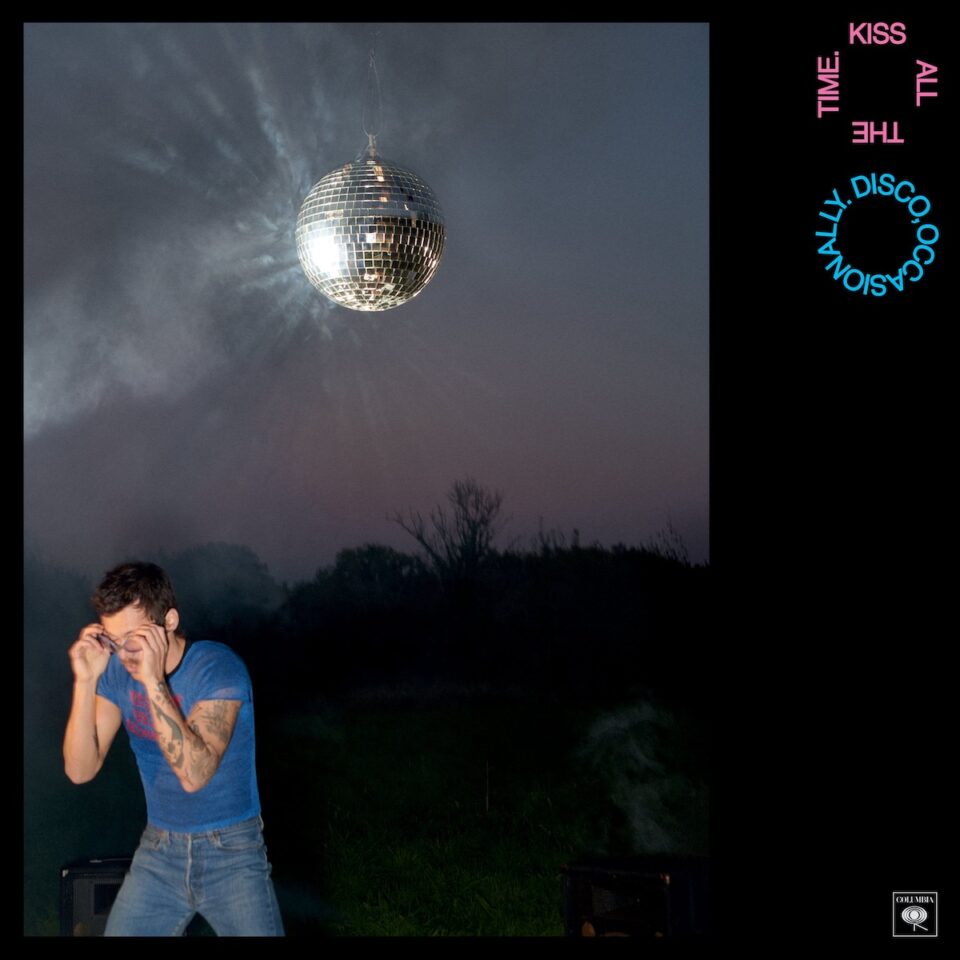If you were making the scene in New York or London between 2000 and 2006, you’d think British post-punk legends Gang of Four were the most important band in history. Seemingly every musical upstart coming out of Camden or the Lower East Side was copping their jagged funk riffs and, at least on the surface, their defiant attitude. Sufficiently inspired, the original Gang of Four lineup reformed in 2004 after a seven-year hiatus and had a heroic run, tearing up stages (and smashing consumer goods all over those same stages) as a reminder of their original position in the ideological universe.
Singer Jon King and guitarist-singer Andy Gill eventually continued on without Dave Allen and Hugo Burnham, finally releasing a ripping new album of original material, Content, in 2011. But now, King has finally bowed out, leaving Gill to carry on the mission with assorted high-profile collaborators, including The Kills’ Alison Mosshart and The Big Pink’s Robbie Furze. The resulting new album, What Happens Next, runs the gamut from snarling metallic blues (“Broken Talk,” with Mosshart) to gothic electro (“Graven Image,” featuring Furze) to jagged post-punk (“First World Citizen”). The lyrics are stinging and incisive as ever (“Your free will is heresy,” Gill declares on “Graven Image”), only now also decisively confronting the technological takeover of our culture and thought patterns.
Here, we sit down to talk with Gill about Gang of Four’s past proclamations and what keeps the band’s passions present on the new record.
What’s the reason for still carrying on as Gang of Four?
I feel now like I did then; it’s the joy of making a noise with a guitar, but also about getting to say the things that you can’t always say in real life. You don’t want to spend a dinner conversation having a fight—you learn to shut up and put the ideas in the songs. And at a certain point, the songs take on a life of their own.
If you think of the ongoing financial crisis, “Capital (It Fails Us Now)” [from 1982’s Another Day/Another Dollar EP] seems exceedingly prophetic now, but you always claimed to not be specifically political, but to rather just be inspiring people to think.
Well, we didn’t want to be issue-specific, to be current affairs–specific…or to actually prescribe the medicine. It was more about observing how the systems worked on a macro and micro level, and how they affected us and the people around us. I think it was more potent for that. The Clash always had one foot on the barricades, and we were not that. We were always more…discursive.
“I don’t like separating the ideas and the music because, for us, they’re one and the same.”
Well, think about it—we just had a serious, militarized racial incident in Missouri. Yet, music and culture barely joined in the fight. Why do you think that is?
No one seems to want to go there—anything that smacks of politics, so to speak. There are so many new bands being influenced by Gang of Four, and they take cues from us to help build their sound, but they pretty much never take anything from the ideas. I don’t like separating the ideas and the music because, for us, they’re one and the same.
How did you come to work with the guests on this record?
When Jon King bowed out, it was an opportunity to work with other people that I admire. I didn’t have a big list, it was all very casual. Alison is amazing. Herbert Grönemeyer is a friend—he’s like the biggest selling singer in Germany. He’s just got the most beautiful voice, and does these pain-soaked ballads. It’s quite Wagnerian. The song that he sings on this album, “The Dying Rays,” was written specifically for his voice.
I generally get the Gang of Four sort of sarcasm. But what are you trying to say with “England’s In My Bones”?
It’s sailing very close to the wind. It’s very dry, and it’s deliberately ambivalent. This record is a lot about identity, what it is to be a New Yorker, or a Londoner, and how all the global forces come into play.
Well, Britain is a very ill-defined kingdom at the moment. Scotland almost seceded; you have most of the rest of the UK resenting how much influence is concentrated in London. You also have a leader who literally can’t come up with a position—especially in regards to the level of involvement in the EU.
And I don’t think anybody’s got a clue what the answer might be. It’s enormously confused and problematic. In the wake of the Scottish referendum, now everybody is talking about having separate parliaments. People are obsessing about identity, and about where their allegiances lie.
“There must be some great impulse to do this, because it’s not an easy life. It would be easier to run a cappuccino shop.”
And national identity is a burning topic in the UK right now.
Yeah, you have the massive rise of the UK Independent Party, which is anti-immigration, supposedly pro-British. [“England’s In My Bones”] is about those things—what we were told England was about growing up and what it is actually, really about.
So do you still feel as though you’re standing up for something?
Perhaps nothing quite as grand as that. But there must be some great impulse to do this, because it’s not an easy life. It would be easier to run a cappuccino shop.
And you’re not doing that. So you must be happy with this record?
Immensely happy. I think it’s one of the best things I’ve ever done—and I’m honest enough to not bullshit about that. FL







